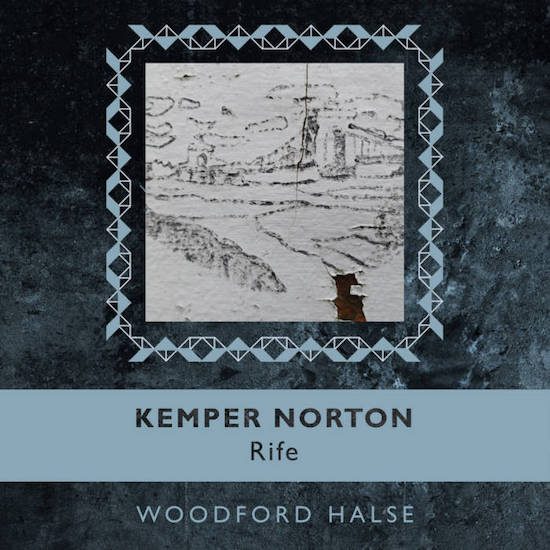The psychosphere of pastoral England is a wellspring that will never run dry. From Kenneth Grahame to John Wyndham, Kate Bush to Gazelle Twin, the timeless pulsations of the natural world have for decades echoed through the arteries of popular culture. These waters can be poisoned too, as witnessed in the nativism that framed much of the Brexit debate. But when it runs free, there is nothing so transportive as art that unpacks the mysteries gathered beneath the grey skies and creaking boughs of the deep countryside.
Giving voice to these murmurations has been a lifelong undertaking by the Cornwall-raised, suburban Brighton-based composer Kemper Norton. His wise, foreboding electronica is both modern and primordial and has been connected to the hauntology scene and to Aphex Twin (Norton was an almost-contemporary of Richard D. James in small-town Cornwall – they went to different schools in Truro).
Rife, his new three-track mini-album, argues powerfully that Norton belongs to a genre of one. He has always sounded singular. However, the sense of an artist working in their own quixotic space is especially pronounced on this release, inspired by a day exploring the “downs, towns, rivers and coast” of East Sussex across a single day in spring 2022.
On previous records, Norton has delved into the largely unremembered history of Cornish copper mining, old Scottish children’s songs and industrial accidents from the 1960s. The grand theory infusing all these projects is that there is nowhere more inscrutable than the weird, rambling wilds outside your front door. That feeling of riddles lurking in plain sight ripples through the melodramatic ooze of ‘Rife 1’, where a protean hum sits atop an eerie guitar refrain. It extends into ‘Rife 2’, in which ambient coos and swells cycle between a low-key bliss and a slowly rising menace. The effect is comparable to a sunny day intruded by a cloud arriving literally from out of the blue: heat prickles your skin, and then a coldness descends.
The palette Norton has assembled to give expression to his vision has the claustrophobic quality of a walk under low-hanging trees. There are shadowy gusts of piano, fuzzed backwashes. And a pitching melody that splits the difference between whale songs and woodlands groaning in the dark.
Devastating closure is achieved with the third track, ‘My Love Is Gone’, Norton’s take on an old Sussex lament in which a young woman keens for her dead lover. “She stretched forth her arms and made a great leap,” he sings in a reedy voice. “From the rocks that were high to the water so deep”. The same trajectory is followed by the record as a whole, as it plunges into dark, deep places. Unlike the protagonist in ‘My Love Is Gone’, the listener will eventually come up for air – but with a chill that endures long after Norton has fallen silent.



